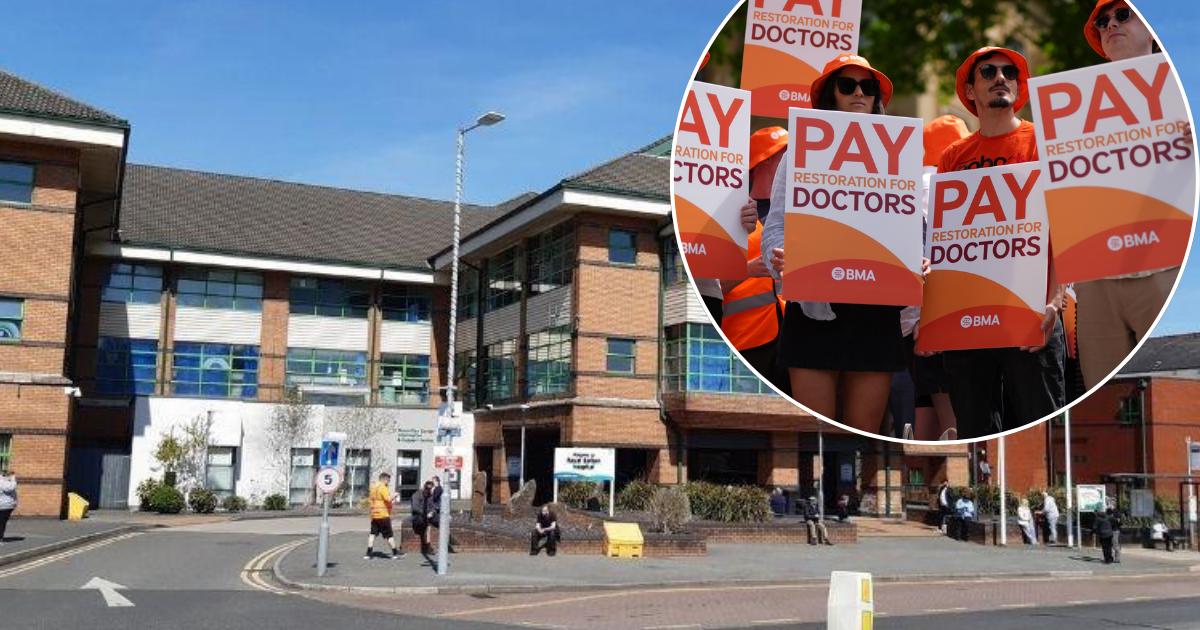Bolton NHS Foundation Trust detailed the number at its board meeting, which was held just after the strike action.
The latest strike began last week amid an ongoing row over pay.
Resident doctors, previously known as junior doctors, went on strike demanding a 29 per cent pay rise and have since been locked in industrial action with the government, which has refused to negotiate on pay.
Hospital leaders have since called on the British Medical Association (BMA) and the Government to end the strikes after five days of disruption across the NHS in England.
The Royal Bolton Hospital was among those affected by the industrial action.
Figures have revealed the NHS maintained care for an estimated 10,000 more patients during the latest doctors’ strike compared with last year’s industrial action.
READ MORE:
Nationally, data shows that 93 per cent of planned operations, tests and procedures went ahead during the five-day walkout across England.
Chief Operating Officer Bolton NHS Foundation Trust, Rae Wheatcroft said: “As a result of the strike action, Royal Bolton NHS Foundation Trust have had to cancel 58 outpatient appointments and 32 procedures over the course of the five days.
“The action has had an impact and will continue to have an impact on our longer waiting patients unfortunately.
“The longer waiting patients are lower risk patients, and therefore they are the ones that have been cancelled in some instances.
“It will depend on whether there is further action as to how this transpires.
“The financial impact of the strikes will depend on the decisions we take as early warning indicators. If we see the waiting list change direction, which has been reducing for the past 12 months.
“If this changes direction, that will be an early indicator, and we will know to take action.”
Nationally, in previous walkouts, the majority of non-urgent care was postponed.
Fewer than a third of resident doctors, previously known as junior doctors, chose to join the strike, which ended on Wednesday morning.
The number was down by 7.5 per cent (1,243) on the previous round of industrial action in July last year, according to the early analysis of management information collected by NHS England.
The BMA said it recognised the efforts that senior doctors and healthcare workers made during the strike to provide care to patients, but it disputed the figure set out by the NHS.
It said: “NHS England’s claim that the majority of England’s 77,000 resident doctors chose to ‘join the NHS-wide effort to keep the services open’ requires a huge stretch of the imagination, given it is almost impossible to know the exact number of residents working on any given day because of complex work patterns, on-call schedules and the strike spread across a weekend.
“Added to that, in July many doctors are using up their remaining annual leave before their new posts start and would therefore not show up as striking.
“We look forward to seeing hard and fast data on NHS England’s claim.
“The strike could have been averted, as could any future ones, if Mr Streeting had come, and will come, to the table with a credible offer that resident doctors in England can accept.”

